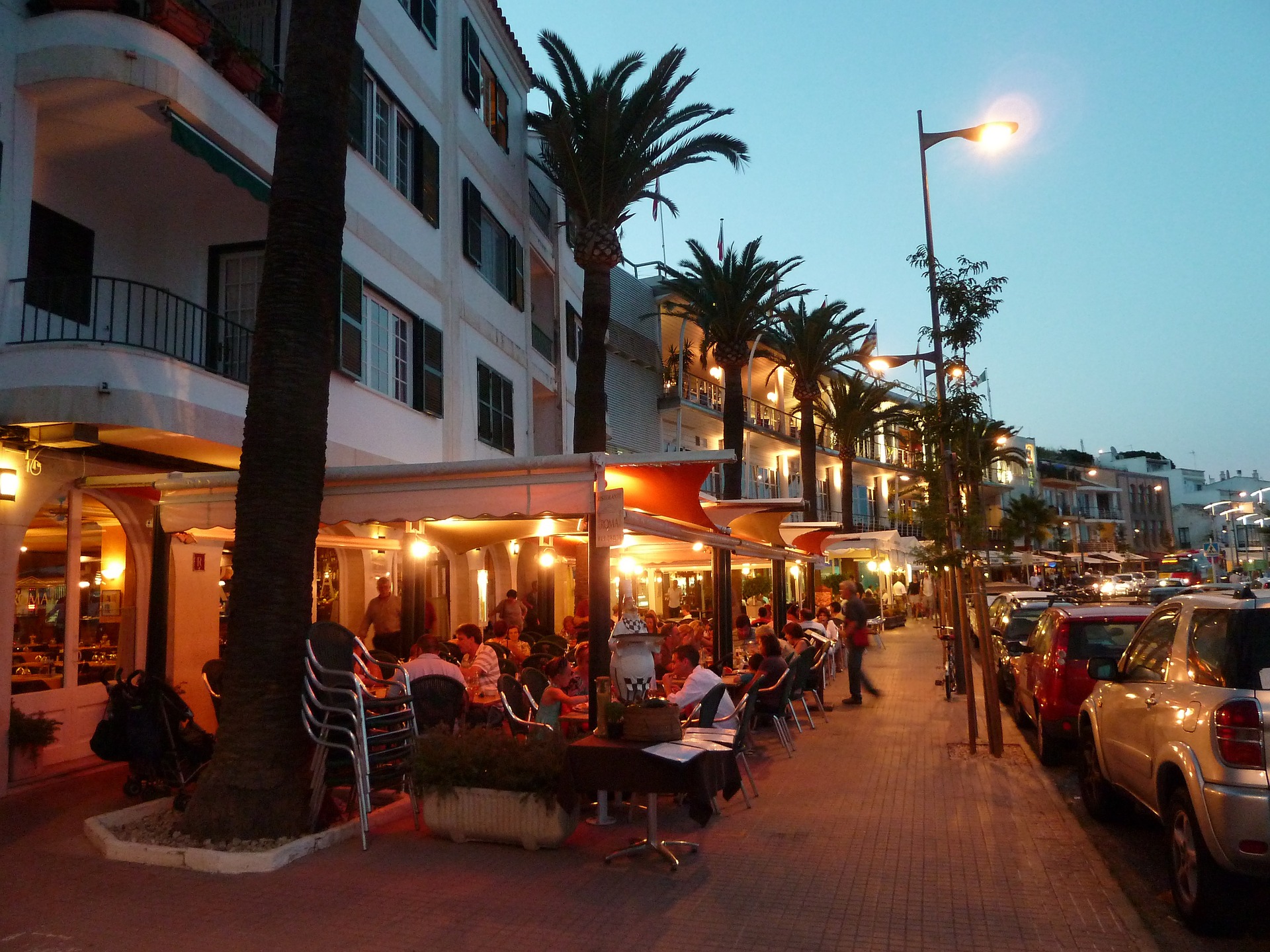Coronavirus Update: 823 New Infections, 12 Fatalities
ZAGREB, 12 March, 2021 - Over the past 24 hours, 823 people in Croatia have contracted coronavirus and 12 have died, the national COVID-19 crisis management team said on Friday.
There are currently 4,522 active cases of the infection, 811 COVID-19 patients are being treated in hospitals, and 78 of them are on ventilators.
Since 25 February 2020, when the first case of the infection was recorded in Croatia, the country has registered 249,661 people infected with coronavirus and 5,647 people have died.
A total of 239,492 people have recovered, including 578 over the past 24 hours.
There are currently 17,012 people in self-isolation.
To date, 1,416,328 people have been tested, including 5,945 in the last 24 hours.
For more about COVID-19 in Croatia, follow TCN's dedicated page.
Croatia Extends Anti-Epidemic Measures After March 15
ZAGREB, 10 March, 2021 - In the last seven days, new coronavirus infections in Croatia rose by 25% compared to the week before that, and the existing anti-epidemic measures will be extended even after 15 March, the country's COVID-19 crisis management team said at a news conference in Zagreb on Wednesday.
The team's chairman, Interior Minister Davor Božinović, said that he hoped that the restrictions would not have to be ramped up.
The numbers are growing, however, there are not any particular hotspots, he added.
Croatia's coronavirus update: 962 new cases, 4 deaths, 334 recoveries
In the past 24 hours there were 7,499 coronavirus tests conducted, and 12.8% of them, that is 962, have returned positive. The death toll linked to COVID-19 has increased by four more fatalities to 5,625.
Currently, there are 3,981 active cases, including 807 hospitalised patients 82 of whom are placed on ventilators.
Since the first registered case of the coronavirus infection in the country on 25 February 2020, more than 1.4 million tests have been conducted, and 248,061 of them have turned out positive. To date, 238,455 people have recovered from this infectious disease.
Weekly rise of 25% ascribed to private gatherings
The head of the Croatian Institute of Public Health (HZJZ), Krunoslav Capak, said that a weekly rise of 25% was mainly due to family and private gatherings.
He added that 429 samples of 1,200 sent from Croatia to the European Centre for Disease Control had to date been sequenced, showing that 123 samples contained the British variant of the novel virus and 115 with the Czech variant. More results are expected next week.
50% of Croatian population may be immune to virus by this summer
A serological research carried out by the HZJZ covering 436 samples of people who caught coronavirus in the second wave of the pandemic has shown that 25% of them, that is one on four, have antibodies, Capak said.
The continuation of inoculation at the predicted rate could enable Croatia to have at least half of its population immune to coronavirus by this summer, according to his estimates.
Health Minister Vili Beroš announced a shipment of another 743,376 doses of COVID vaccines by the end of this month.
He expects the immunisation of one-fifth of the population with the first shot of the two-dose vaccine during this month.
For more about COVID-19 in Croatia, follow TCN's dedicated page.
Croatia's Coronavirus Update: 962 New Cases, 4 Deaths, 334 Recoveries
ZAGREB, 10 March, 2021 - In the last 24 hours Croatia has conducted 7,499 coronavirus tests, and of them 12.8%, that is 962, have returned positive, the national COVID-19 crisis management team reported on Wednesday.
The death toll linked to COVID-19 has risen by four more fatalities to 5,625.
Currently, there are 3,981 active cases, including 807 hospitalised patients of whom 82 are placed on ventilators.
Since the first registered case of the coronavirus infection in the country on 25 February 2020, more than 1.4 million tests have been conducted, and of them, 248,061 have turned out to be positive.
To date, 238,455 people have recovered from this infectious disease.
There are now 14,537 people self-isolating.
For more about COVID-19 in Croatia, follow TCN's dedicated page.
Croatia Ready to Take in About 10 COVID Patients From Czechia and Slovakia Each
ZAGREB, 9 March, 2021 - Croatia is ready to take in about ten COVID patents from the Czech Republic and Slovakia each, Prime Minister Andrej Plenković tweeted on Tuesday after his telephone conversation with his counterparts Andrej Babiš of Czechia and Igor Matovič of Slovakia.
"I have conveyed Croatia's readiness to hospitalise about ten COVID-19 patients each from the Czech Republic and Slovakia, if necessary, taking into consideration the fact that their respective health systems are under strain," Plenković wrote on his Twitter account.
Croatia is showing its solidarity with EU member-states in the struggle against COVID-19, he underscored.
The Czech Republic, which has been one of the hardest hit countries in the world by the COVID epidemic recently, has asked Germany, Switzerland and Poland to take in dozens of COVID-19 patients as the situation in its own hospitals has reached a critical point.
Slovakia has already transferred some of its patients abroad this week.
Poland and Germany each have said that they can hospitalise ten patients from that country.
For more about COVID-19 in Croatia, follow TCN's dedicated page.
Labour Minister Josip Aladrović: "We Are on Right Track to Agree on COVID Pension Supplement"
ZAGREB, 9 March, 2021 - Labour Minister Josip Aladrović said on Tuesday that negotiations were underway with pensioner unions and associations about COVID supplements for retirees.
"We've had a few operational meetings and that issue is something that cannot be resolved in such a short time however, I am certain that we are on the right track for an agreement regarding a COVID supplement," said Aladrović, when asked by the press whether the talks reached a standstill.
He announced that talks on that issue would continue at the end of this week and in the coming period.
"I am certain that Croatia can become one of the countries that introduces a COVID supplement but we have to be aware on the other hand of the fiscal limits in our budget," he added.
Aladrović added that he would leave all options open,however, he is certain that good will for an agreement exists and that it is possible.
Asked whether the decision was waiting for the local election, Aladrović said that this is a supplement that is unknown in other European countries and that it cannot be brought into the context of current political circumstances and situations.
Last month during a meeting with Prime Minister Andrej Plenković, pensioner associations raised the issue of a COVID supplement and asked for just over 800,000 pensioners with a pension allowance of up to HRK 2,710 to be paid a COVID supplement of €150 (HRK 1,125).
They also proposed that about 244,000 pensioners with pension allowances between HRK 2,710 and HRK 5,000 be given a supplement of €100 (HRK 750) and for 7,200 single pensioners who receive a pension allowance of more than HRK 5,000 to be given a supplement of €50 (HRK 375).
The supplement would, according to their calculations, come to HRK1.93 billion.
For more about politics in Croatia, follow TCN's dedicated page.
Government Authorises Health Minister Vili Beroš to Purchase Pfizer/BioNTech Vaccine
ZAGREB, 9 March, 2021 - The Croatian government on Monday adopted a conclusion authorising Health Minister Vili Beroš to sign an order for the procurement of the Pfizer Inc./BioNTech COVID-19 vaccine.
The conclusion was adopted in line with an agreement signed between the European Commission and Pfizer Inc./BioNTech Manufacturing GmbH on 17 February 2021.
The funds for the procurement of the vaccine will be secured by the Croatian Health Insurance Fund.
The EC has so far signed six agreements on the upfront purchase of vaccines against COVID-19 on behalf of EU member states. The February 17 agreement between the EC and Pfizer refers to the purchase of an additional 200 million doses.
For more about COVID-19 in Croatia, follow TCN's dedicated page.
Croatia Reports 491 New Coronavirus Infections, 12 Deaths
ZAGREB, 9 March, 2021 - Over the past 24 hours, 491 people in Croatia have contracted coronavirus and 12 have died, the national COVID-19 crisis management team said on Tuesday.
There are currently 3,357 active cases of the infection, 785 COVID patients are being treated in hospitals, and 78 of them are on ventilators.
Since 25 February 2020, when the first case of the infection was recorded in Croatia, the country has registered 247,099 people infected with coronavirus.
A total of 5,621 people have died and 238,121 have recovered, 476 of whom over the past 24 hours.
There are currently 13,687 people in self-isolation.
To date, 1,396,129 people have been tested, including 8,183 in the last 24 hours.
For more about COVID-19 in Croatia, follow TCN's dedicated page.
Croatia's Coronavirus Update: 658 New Cases, 15 Deaths, 482 Recoveries
ZAGREB, 6 March, 2021 - In the last 24 hours, Croatia has conducted 5,838 coronavirus tests, and 658, that is 11.3%, have returned positive, the country's COVID-19 crisis management team reported on Saturday.
In the said period, there have been 15 deaths linked to COVID-19, bringing the death toll to 5,585.
Currently, Croatia has 3,770 active cases, of whom 738 are hospitalised patients, including 72 placed on ventilators.
Since 25 February 2020, when Croatia recorded its first case of infection with coronavirus, 1.38 million persons have been tested and 246,120 have contracted the virus. Of them, 236,765 have recovered, including 482 in the last 24 hours.
There are now 15,312 people self-isolating in the country.
Index: Cafe Terraces Open In Two Weeks If Numbers Stay Low
February 17, 2021 – Indoor sports return and cafe terraces open on Monday 1st March if infection numbers remain low, learns Croatian media outlet Index.
By the time spring arrives, Croatian coffee lovers should be back enjoying their drinks outside their favourite cafe bar. Cafe terraces open on Monday 1st March 2021 if Coronavirus infection numbers remain low and stay on their current trajectory, according to Croatia media outlet Index.
Indoor sports will also return on the same date, with the same stipulation that infection numbers remain low. Having cafe terraces open again cannot come too soon for frustrated business owners. At the moment, they are only permitted to serve coffee to go. According to Index, from on Monday 1st March 2021, cafe terraces open and people will no longer need to congregate on the street outside, in parks or on benches to enjoy their drinks.
“Measures should be further relaxed throughout Croatia as of March 1, including the much-anticipated opening of cafe terraces,” says the portal. Cafe terraces open and other relaxed measures depend on the prerequisite of figures remaining at the level they are at now. “The share of newly infected in the number tested in recent days is below five percent,” Index adds.
Headquarters and the government had already announced that the next round of concessions could be expected in early March. Cafe terraces open in Croatia from March 1st 2021, if Coronavirus numbers remain low, say media outlet Index
Cafe terraces open in Croatia from March 1st 2021, if Coronavirus numbers remain low, say media outlet Index
Croatian cafe terraces open, the interior of cafes and restaurants remain closed
“As we find out, the terraces of cafes and restaurants will definitely open on March 1,” wrote Index. “However, according to information from a source close to the Headquarters, the closed (interior) parts of cafes and restaurants will not be opened. (This) is realistically expected in April at the earliest.”
“Once cafe terraces open, guests will most likely not be able to enter the interiors of cafes and restaurants, except perhaps for the use of toilets, to prevent indoor parts of cafes and restaurants from being used and guests being served there. Closed spaces are still considered by headquarters (to be) an extremely high risk when it comes to the spread of coronavirus.”
Further relaxation of Coronavirus measures: Indoor sports to return
According to Index, although the first information received said that from March 1, only indoor sports for children would be opened, the portal has discovered that instead all indoor sports should be opened, with prescribed epidemiological measures. They remind that, according to current measures, only gyms, swimming pools and contactless individual ball sports are allowed.
Public gatherings / marketplaces / fairs
“There should be concessions when it comes to fairs, but it is not yet completely clear under what conditions,” says the portal. Like supermarkets, open-air and indoor markets are currently permitted to operate. The newly relaxed measures will pertain to similar, but more irregular events at which arts & crafts, books and other goods are on display for sale. The portal say that the vending and consumption of food – which is traditional at such events – will likely not be permitted for now.
“The headquarters is inclined to open fairs where products are sold or exhibited, but the consumption of food and drinks might be limited to prevent excessive gatherings and socializing,” they say.
Relaxation of Coronavirus measures pertaining to private gatherings
“The allowed number of people at various gatherings should not change significantly, only minor corrections are possible,” claims the portal, adding that the current ban on the gathering of people from more than two households may instead be downgraded to a recommendation. The portal reminds that this measure has not been strictly enforced in any way before.
"To give way on March 1, the numbers have to stay at about the level they are now. But the pressure is great - no one wants to keep something closed that should not be kept closed. Most of it is already open, so there remains a narrow circle of what can still be given,” a source close to the Headquarters is quoted as telling Index.
Friction between regional and national authorities over easing of Covid-19 measures
Even if cafe terrace open on March 1st, Index concludes their article by reminding that a disparity between regional and national authorities is still causing some friction. The friction between two north-westerly regions of the country and national headquarters is specifically addressed.
“The Headquarters believes that the announcement of the Istrian Headquarters that they will open the terraces of cafes and restaurants on March 1 was very incorrect. They (national headquarters) say that this opening is planned at the level of the whole of Croatia anyway.”
“However, the decision of the Primorje-Gorski Kotar headquarters, which postponed the opening of bookmakers and casinos in that county, is perhaps even more critically commented on. The government states that the opening of bookmakers (betting shops) and casinos is a purely financial decision and ironically comments that if the Primorje-Gorski Kotar County wants to leave these facilities closed, they should (themselves) cover the costs that will be incurred,” says the Index article.
Index claims that these moves from Istria and Rijeka (Primorje-Gorski Kotar) are regarded in the National Headquarters and the government as politicking and that they are connected with the upcoming local elections.
For the latest travel info, bookmark our main travel info article, which is updated daily.
Read the Croatian Travel Update in your language - now available in 24 languages
Epidemiologist Bernard Kaic: 8 Infected with UK Coronavirus Variant, In Croatia Since January
February 10, 2021 – At today's Civil Protection Headquarters' press conference, Croatian epidemiologist Bernard Kaic stated that there are eight more infected with the British variant of coronavirus in Croatia. Interior Minister Davor Božinović said that the virus has been present in Croatia since January 20th, 2021.
In the past 24 hours, 577 new cases have been recorded, so the number of active cases in Croatia today is 2596. Among them, 1,055 patients are in hospital, of which 92 are on respirators. Fourteen people died. Epidemiologist Bernard Kaić said that the number of infections in Croatia is decreasing from week to week.
"These 577 cases are less than last week. The share of positives among those tested is also falling. However, these are still large numbers compared to spring. The daily incidence is 146 per 100,000. We are among the better in the EU; only four countries have a lower incidence. As for the counties, the lowest incidence of 14 days is in Istria County with 42 per 100,000, followed by Požega-Slavonia County with 63, and the highest in Split-Dalmatia County," Kaić said.
He added that 655 side effects had been reported on the Pfizer vaccine and 17 on the Moderna vaccine to date. As he says, side effects were expected. Twenty-nine allergic reactions have been reported, but all have passed without any consequences.
Samples of the new variant taken at the end of January
Alemka Markotić talked about the British variant of coronavirus that appeared in Croatia today. The first three cases have been confirmed.
"Colleagues from the Croatian Institute of Public Health (HZJZ) said they had preliminary results for eight patients, but they will inform the public in more detail. As for the samples we confirmed, one is a 50-year-old man from the Family Medicine Practice; the clinic has no data on his clinical state. There is a 3,5-year-old child, who had symptoms of the gastrointestinal tract, fever, vomiting, and diarrhea, and the parents are positive. A third is a 34-year-old man, and we have no information about him," Markotić said.
She added that what they found was no surprise and that it was a matter of time when the new variant of coronavirus would be detected in Croatia. It was good that a significant number of new patients connected with the new variant could not be seen. However, she stressed that we still need to be very responsible, vigilant, and adhere to measures.
Kaić said that there is no data for these eight positive cases yet. It is only known that the samples were taken in the second half of January. They still do not know all the contacts of the infected with the new strain, but they have been working on it since early morning. They will undoubtedly be required to be in self-isolation.
"Those eight infected are from Zagreb, Sisak, and Vukovar-Srijem County. Samples were taken in the second half of January. That means we had a new strain back then. We need to do everything we can to reduce the spread of the new variant so as not to increase the incidence," Kaić said.
Beroš: All three types of vaccines are effective
"It is crucial to detect the new variant's existence by sequencing methods we have undertaken, and it is important to respond epidemiologically to new challenges. The whole of Europe is on alert. This is an opportunity to show responsible behavior once again. Our vigilance has created a good basis for a new fight. We will have to balance between milder and stricter measures," said Health Minister Vili Beroš.
As for the vaccines, Beroš said that the vaccination with the AstraZeneca vaccine has begun. The vaccination with Pfizer and Moderna will continue, and the second phase will start when it is the turn of senior citizens and people with comorbidities.
He stressed that none of the vaccines in Croatia have age restrictions. Regardless of the effectiveness' percentages, all three vaccines in the 100 percent range prevent the onset of the most severe forms of the disease, hospitalization, and death.
"We use what is available, and these are three types of vaccines that the whole world considers to be effective," Beroš said.
The most vulnerable are a priority in vaccination
Journalists asked the Civil Protection Headquarters about the University of Zagreb rector Damir Boras, who was allegedly vaccinated "before his turn", which caused a great deal of public attention.
"I immediately asked for a statement, and I condemn the vaccination before your turn. We have adopted a vaccination plan. The deprivation of the rights of the most vulnerable is not acceptable. I will wait for a response from the Rebro Clinical Hospital Center, and we will see. I appeal to all those who carry out vaccination to do it according to the vaccination plan," said Beroš.
When asked how they decide what to do with unused doses, Kaić said there is no prescribed protocol.
"A common-sense protocol is to vaccinate someone interested rather than throw away the vaccine, especially when we don't have enough vaccine, regardless of who is vaccinated to get another dose when needed. Likewise, suppose it is possible to start vaccinating in dispensaries, and somewhere the last user of a nursing home or the last health worker in the area has not yet been given. In that case, the first phase of vaccination inevitably overlaps with the second. Where would we come from not giving the vaccine we have. Decent quantities have arrived this week; next week, they are coming again. If we do not give the vaccine until the first phase is resolved, it would be harmful to delay vaccination," said Kaić.
Beroš said he did not believe the rumors that people were getting vaccinated before their turn. He said he condemned such actions. "We are all equal, but the most vulnerable must have priority," he said.
Božinović: New decision on measures to protect both people and economy
When asked by journalists about how a new variant of coronavirus entered Croatia, Alemka Markotić answered – by human migration.
"We will try to find out in detail where they were imported from. But viruses migrate along with humans. It would not be like that if there were no such migrations. It is a variant that is spreading faster. It is among us, and we must adhere to the measures in force to prevent the spread, such as in Ireland, Portugal. The whole world is in fear of spreading. If the health care system is burdened, the number of dead will also increase. In Germany, they are proposing even stricter measures," Markotić said.
Interior Minister Davor Božinović commented on the easing of measures.
"We have to pay attention to the new strain, but that is not a reason to panic. We have to monitor the situation in European countries. Each country reacted differently, and all this happens when vaccination does not go as planned. We must also take into account the forecast announcing low temperatures. So, we will take all this into account," Božinović said.
He added that a new variant of the coronavirus has been present in Croatia since January 20, 2021, since the numbers of newly infected people have been falling.
"The new variant will also be discussed at the Scientific Council to make a decision that will protect people, but also which must be rational for economic activities," Božinović said.
A new strain of coronavirus will be detected by random testing, and Markotić said they would also react as soon as they notice that someone has come from abroad or that there are more hospitalized or infected in an area. It takes about two weeks to complete the whole process because a regular PCR test does not do it, but the process is more complicated.
Sources: Index.hr, Jutarnji list
To read more news about coronavirus in Croatia, follow TCN's dedicated page.


